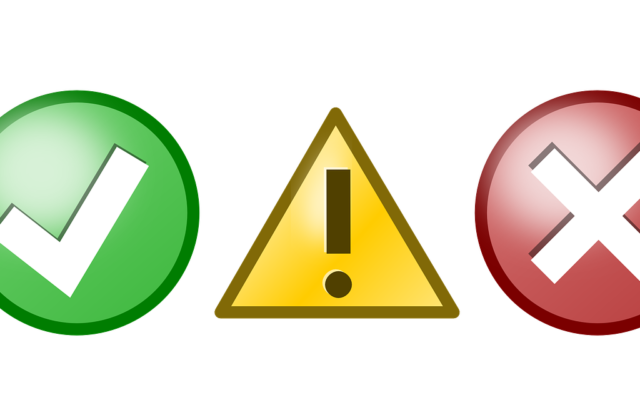In thinking about the problems that enterprises encounter, certain questions came to mind and the answers to some of those questions will provide insight into the measure of your enterprise pertinence.
- What problems is your enterprise experiencing?
- What problems is your enterprise trying to resolve?
- How do you decide that these are the most important problems to solve?
- What questions do you ask in this process?
- Are you asking the right questions?
Enterprise problems
All enterprises encounter problems. Yet, I wonder how well enterprises deal with the problems they encounter, and more particularly, how well enterprises deal with determining which problems to resolve, what priority to give to resolving them and how much to invest in resolving them.
The constant references to failed enterprises, failed business strategies, failed change initiatives, failed IT projects, … suggests that there are no shortage of problems to address and no shortage of opportunities to get better at solving problems!
Given how many problems might be encountered and the investment in effort to analyse the problem, design and assess potential solution options, develop and integrate these solutions into our enterprises, there is a need to:
- assess and prioritise the problems, their solutions and the value they will deliver in terms of enhanced enterprise performance and outcomes
- assess the cost and value of assessing and prioritising any prospective problem
This is what leads to considering whether we are asking the right questions about:
- the problems we are experiencing or might experience
- the extent to which these problems might prevail given changes in the ecosystems in which they operate or in the directions we might pursue (whereby some problems might not arise)
- the root causes of the problems we are experiencing
- how we perceive the problems that might or might not arise
Attention economy
What is the attention economy? How is it relevant to enterprise pertinence?
The attention economy reflects a view of our lives as being awash with information commanding our attention. Think of all the information coming to you via:
- television, radio and print media
- emails commanding your attention and action
- social media – Facebook, LinkedIn, Twitter feeds
There are only so many “waking hours” in a day, so there are only so many “signals” to which you can give your attention. Here we have a supply and demand problem – one where “economics” comes into play. There is more demand for your attention than there is supply of attention that you can give. How do you decide which to ignore and which to consider? We make choices as to the allocation of our time and attention. We deem one signal to be more pertinent to our life and the various enterprises in which we engage. This is the “stuff” of work / life balance, of strategic versus tactical, of relevant versus irrelevant, of attention versus distraction.
It is as much about how we spend our “personal” time as it is about how we spend our “work” or “enterprise” time. Our awareness of problems and attention to problems is part of enterprise pertinence.
How do we identify problems? How do we assess problems? How do we assure ourselves that we are assessing problems well (right) and assessing the right problems?
This is the business of quality, assurance and governance, asking questions and asking the right questions. In governance roles, one learns to ask questions and one learns to recognise powerful questions. An example is the question all Boards must ask themselves and should be able to answer:
- What constitutes success? How would we recognise success?
This is also the field of learning, single, double and triple loop learning:
- Single loop learning – are we doing things right?
- Double loop learning – are we doing the right things?
- Triple loop learning – how do we decide what is right?
In understanding and exploring any area of activity, it becomes evident when asking a leader in the field a particular question, and they respond “That’s a good question” or “I have thought of asking that question”. Such situations of evidence of high individual and (potentially) enterprise pertinence.
Enterprise development
With the increasing complexity of the environments in which enterprises operate, we appreciate that enterprises must adopt an adaptive approach, where they need to learn about their situation and the associated problem space before being able to consider potential solutions. This will engage us in asking a range of questions, often around the five interrogatives:
- Why?
- What?
- How?
- Where?
- When?
Deloitte University recognised this growing dynamic, and advised clients that we are transitioning:
- from the industrial age where successful enterprises successfully scaled efficiency
- to the knowledge age where successful enterprise successfully scale learning
That entails developing the capability of asking and answering the right questions – the capability of developing enterprise pertinence.
Are you asking good questions in your enterprise?
Article by channel:
Everything you need to know about Digital Transformation
The best articles, news and events direct to your inbox
Read more articles tagged: Featured, Operating Model







